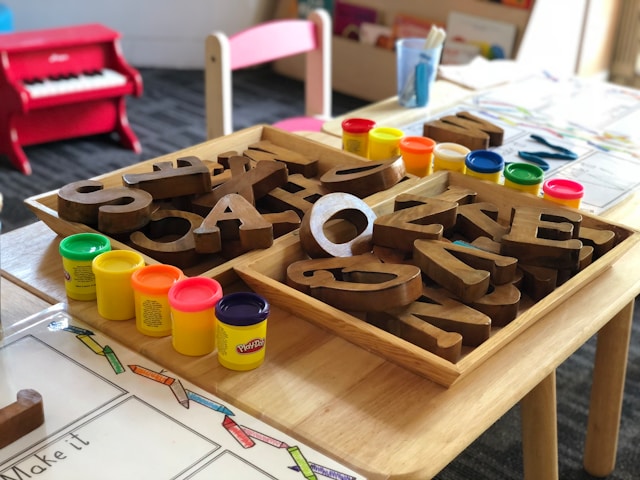The pursuit of education demands dedication, focus, and oftentimes, long study hours. However, even the most serious students can benefit greatly from incorporating leisurely activities into their study regimen. By understanding the symbiotic relationship between work and play, students can optimize their academic performance and well-being. In this article, we will explore the various cognitive and emotional advantages of this balanced approach to learning. Keep reading to unlock a strategy that melds productivity with pleasure, ensuring a more fulfilling educational experience.
The Cognitive Benefits of Incorporating Leisure Into Study Regimens
Occasional breaks for fun activities can significantly enhance cognitive function. The human brain is not designed for sustained periods of intense concentration; it requires downtime to process information and recover. Engaging in leisure activities allows the mind to rest, improving memory retention and better concentration when returning to study tasks. This effectively turns time spent away from books into an investment in mental clarity and focus.
Furthermore, leisure activities often stimulate different areas of the brain that may not be engaged during study sessions. For instance, playing live free slots could improve pattern recognition and strategic thinking, while a game of chess might bolster critical thinking skills. These cognitive exercises could inadvertently equip students with a sharper intellect, thereby enhancing their academic pursuits.
Another cognitive benefit is the enhancement of neural plasticity through diverse experiences. Activities ranging from physical exercise to creative arts can forge new neural pathways, supporting cognitive flexibility. Diverse experiences can also help in developing a broader perspective when tackling complex subject matter, contributing to a more holistic approach to problem-solving.
Structuring Study Sessions: Integrating Entertainment Without Sacrificing Goals
Creating a structure for study sessions that includes entertainment is a science and an art. Start with setting clear objectives for each study period and determine the appropriate timing for breaks. The Pomodoro Technique, for example, suggests studying for 25 minutes followed by a five-minute break. This regimented approach allows for short bursts of entertainment without compromising study goals.
It’s important to select the type of leisure activities wisely. Choose those that fully disengage you from the academic material but are also easy to conclude when it’s time to return to work. For instance, taking a brief walk, enjoying a few pages of a novel, or playing a musical instrument for a few minutes are activities that can effectively refresh the mind without leading to procrastination.
For students pursuing a professional studies program, incorporating entertainment that reflects the nature of their discipline can also be beneficial. Proactive breaks that mirror real-world applications of their coursework can enhance their learning, while simultaneously serving as relaxation.
Stress Relief through Fun Activities: A Strategy for Serious Students
Stress is an inevitable companion on the journey through academia, but leisure activities are powerful allies in mitigating its effects. Engaging in enjoyable pastimes can release endorphins, the body’s natural stress-relievers, promoting a sense of calm and happiness. As such, incorporating fun into the study plan can be a deliberate tactic to maintain mental and emotional equilibrium.
Additionally, fun activities often present opportunities for momentarily stepping away from academic pressures. This mental distancing can prevent students from becoming overwhelmed and can lead to the development of a more resilient approach to stress management. By breaking the cycle of constant worry, students can return to their studies with renewed focus and reduced anxiety.
Particularly, hobbies that absorb a student’s complete attention—such as painting, playing an instrument, or participating in a sport—can lead to a state of ‘flow.’ This immersive experience, characterized by deep engagement and enjoyment, acts as a powerful form of mental rejuvenation that can greatly alleviate stress levels.
Boosting Creativity and Problem-Solving Skills With Playful Breaks
Playful breaks are not only restorative but are instrumental in fostering creativity. When students engage in fun activities, they often tap into their imaginative and creative abilities. This can translate to academic tasks that require innovative thinking and original solutions. Play sparks the cognitive flexibility to view challenges from multiple angles, a skill highly prized in numerous academic fields.
Problem-solving skills are closely aligned with creativity and they too receive a boost from leisure activities. Games that require strategic thinking or creative problem-solving mimic the multifaceted challenges students face in their studies. By navigating the intricacies of a game, students inadvertently refine their ability to negotiate complex scenarios in real-world contexts.
Altogether, the integration of fun activities into a student’s study plan is not merely a suggestion, but a necessity for maintaining cognitive health and achieving academic excellence. Overall, when done thoughtfully, this balanced approach ensures a more engaged, creative, and resilient student capable of reaching their full academic potential.



